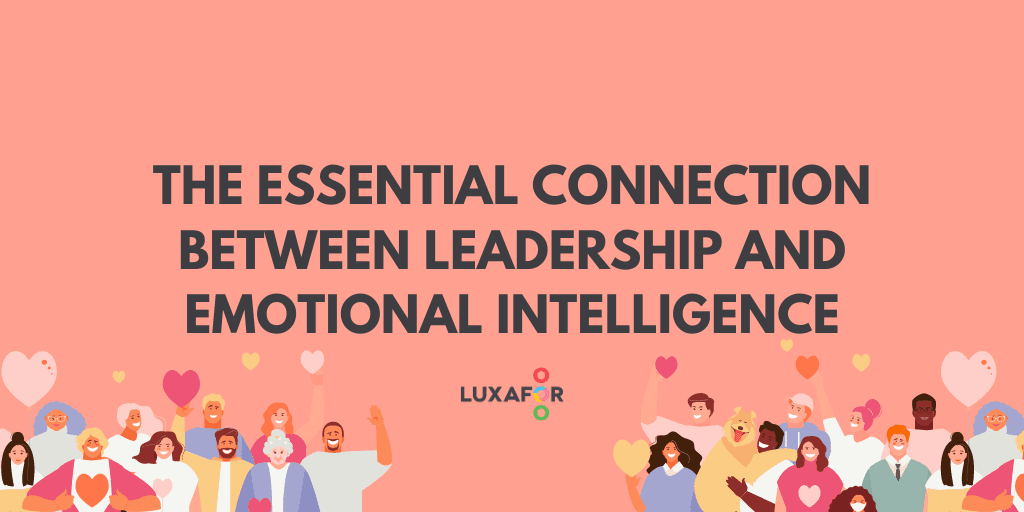The Essential Connection Between Leadership and Emotional Intelligence
Have you ever thought about the success stories of the world’s best leaders? Warren Buffet, Jeff Bezos, and Elon Musk need no introduction. What were the secrets behind their success? Did they get a unique degree or course to become the world-famous leaders they did?
Why only a handful of people become good leaders despite having the same qualifications as their peers? The answer lies in the non-technical skills.
The skills that cannot be printed on a resume make a big difference. Negotiation, empathy, communication, and many other factors are influenced by our emotional intelligence. This shows how emotional intelligence plays a significant role in practicing effective leadership.
But let us first understand the meaning of emotional intelligence:
Emotional Intelligence
This term refers to the ability to manage and understand the emotions of yourself and others. Since leaders need to become role models, they require exceptional communication, problem-solving, and stress managing skills. Technical skills, which are crucial for other positions, are just the entry-level requirements for leaders. Thus, successful leaders have one thing in common – high emotional intelligence.
How to See Emotional Intelligence?
Undoubtedly, finding this unseen quality is a difficult job. When I was creating a few apps for small businesses and was searching for an exceptional leader, some professionals gave me a few tips. These tips are:
- Judge if a person can understand the emotions of his team members.
- Analyze how a person is using his emotions for tackling crucial tasks.
- See if a person can show empathy besides getting the toughest jobs done.
Importance of Emotional Intelligence?
Emotional intelligence plays a key role in determining leadership skills. These two things are directly proportional to each other, and a perfect combination of both produces successful leaders. Let us understand how emotional intelligence influences leadership.
Motivational Strategies
Increasing productivity is one of the key goals of every business. However, finding effective ways to achieve this goal is tricky. Leaders with great emotional intelligence are smart enough to understand the need for motivational tactics. They create customized strategies for every employee and increase overall productivity. Here, the important thing to consider is that leaders increase productivity without burdening or pressurizing the employees.
Employee Voice
The absence of emotional intelligence will never let a leader encourage employee voice. Today, modern-day firms believe in taking feedback from employees and listening to the employee concerns for collective growth. Thus, giving equal opportunity to every employee and encouraging them to speak up is only possible when a leader is emotionally intelligent.
Problem-Solving
Some problems require core technical skills, while others require emotional intelligence. For instance, conflicts among employees, internal policies, and stakeholder’s responses can be resolved with effective leadership. Thus, if a leader can comprehend emotions, he can resolve disagreements among employees. Additionally, such leaders can use soft skills to bring out maximum creativity from the team.
Coordination and Cooperation
If a leader is not gifted with skills to use emotions in the best way, he can never create an atmosphere of learning and growth. Smart and emotionally intelligent leaders give opportunities to every employee for learning and development. An employee with poor skills can easily discuss matters in front of an effective leader. Conversely, ruthless and poor leaders humiliate employees instead of making them learn. These are the leaders with poor emotional intelligence.
How EQ Brings Effectiveness in your Work
Apart from CEOs and other high-profile designations, routine managers also possess a high level of emotional intelligence. Successful managers create a productive and less-stressful environment for the employees. Besides this, they give rise to employee freedom. Consequently, employees consider them highly empathetic and helpful.
Let us see how some emotional intelligence skills make us great leaders:
A Great Boss
Recall the scenario where you had to take a tough decision. Time was less, and the decision required critical analysis. Were you stressed out? How did you handle the pressure?
Every leader frequently deals with these scenarios. However, what makes them stand apart is the ability to understand the source of pressure. Additionally, they internally strategize the steps necessary to take the final decision. The way they channelize this process and brings out the best decision is imperative.
Moreover, such great leaders stay informed about their emotions and tactfully deal with them. This leaves a positive impact on the overall work environment. Conversely, if a leader is stressed out, how will the employees stay calm and productive? Apart from it, this will also leave an adverse impact on employee’s mental and physical health.
Thus, leaders with high EQ skills tend to spend more time understanding and developing relations with employees. This is also proved by a study done by Harvard CEO.
A Better Team Builder
Google did a study in 2013 to find out the traits of most successful teams. The survey asked a few questions related to taking risks, helping other employees, and achieving collective goals. All successful leaders answered “yes” to every question. Additionally, the survey highlighted another important trait among these leaders, which is their high EQ skills.
Thus, these leaders always create a successful team. They believe in regular feedback in which every employee is aware of his weaknesses and strengths—furthermore, their excellence in emotional management help in bringing coordination among employees. An amalgamation of all these things gives rise to great teams that flourish with productivity.
Wrapping It Up
In short, successful leadership is impossible without the presence of strong emotional intelligence. A person gifted with smart skills of handling emotions can efficiently manage every team. These traits of exceptional stress management, coordination, communication, etc., help create effective strategies. Besides this, they help in bringing the best out of every employee. Employees, on the other hand, feel respected and satisfied.
Additionally, emotional intelligence skills create a culture of productivity and learning. Leaders with these skills can smartly handle pressure and make effective decisions. This gives rise to productivity and curtails risks. Thus, emotional intelligence is imperative for effective leadership.



